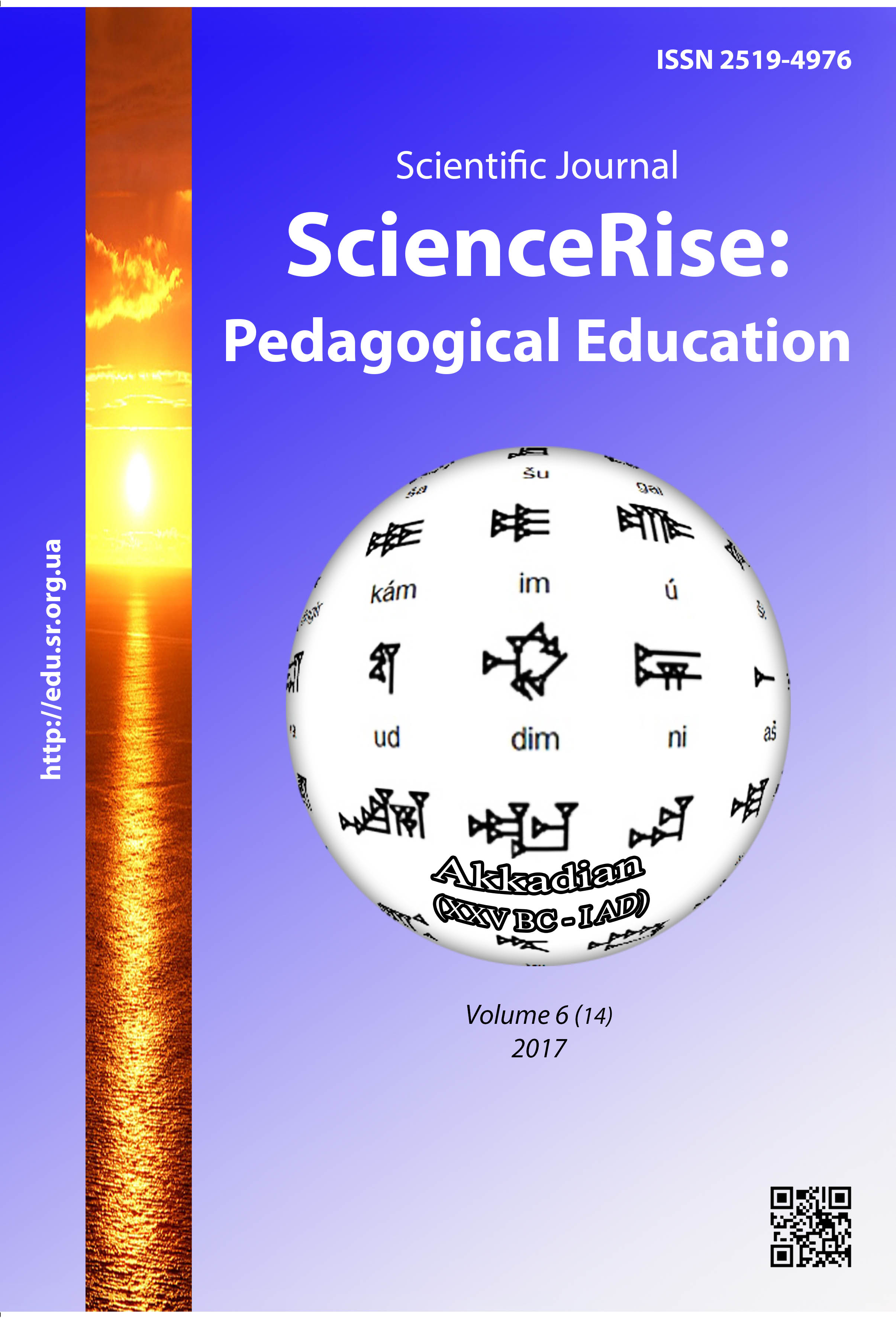The formation of secondary linguistic identity in the process of future pharmacists’ individual work
DOI:
https://doi.org/10.15587/2519-4984.2017.105453Keywords:
autonomy, secondary language identity, individual work, self-evaluation, self-regulation, professional learning, pharmacyAbstract
Considered in the article are the language identity formation parameters of professionally-directed teaching as the key approach to didactic potential autonomy pharmacists’ learning; the conceptual sphere of the notion secondary linguistic ego determination is specified; special attention on exploring the contemporary basic theories of the ESL researchers concerning the most productive a learner-centered technology is focused; the development and implementation rationality of the partial functional model incorporated the lexical, contextual and procedural components aimed at obtaining knowledge through individualization, improving skills, enhancing creative nature aptitudes is substantiated; the cognitive duomodular program in terms of the interrelated dominant format of individual work within and outside the auditorium through the complex of the traditional and interactive forms training for approximating teaching to real professionally-oriented situations of pharmaceutical practice involving three main parts: Searching for Information, Reading and Context-based Talk Experience, Formative – Summative Evaluation Tests included meaningful material drilling is suggested; it is analyzed the possibility of the educational guide arrangement due to the ways of raising students’ intercultural competence as principal target to guarantee effective communication with other environment speakers to ensure students’ ability for their own action style choice in the professional English mastering are emphasized
References
- Hutchinson, T., Water, A. (1987). English for Specific Purposes. Cambridge: Cambridge University Press, 183. doi: 10.1017/cbo9780511733031
- Zadorozhna, I. P. (2016). Promoting prospective FL teacher autonomy through developing learning strategies. Ternopil: TPNU, 319.
- Pishop, G. D. (1979). Perceived Similarity in Interracial Attitudes and Behaviors. Journal of Applied Social Psychology, 9 (5), 446–465. doi: 10.1111/j.1559-1816.1979.tb02718.x
- Nikolaieva, S. Yu. (1987). Individualizaciya obucheniya inostrannym yazykam. Kyiv: Vyshcha shkola, 139.
- Doroz, V. F. (2010). Vtorynna movna osobystist – realiya sohodennya. Visnyk Luhanskoho natsionalnoho universytetu imeni Tarasa Shevchenka, 22, 5–11.
- Dridze, T. M. (1984). Tekstovaya deyatelnost v strukture sotsialnoi kommunikatsii. Moscow: Nauka, 268.
- Nikolaenko, N. V. (1999). Initsiativnoe rasshirenie slovarya studentami mladshih kursov yazyikovyih fakultetov. Moscow, 213.
- Karaulov, Yu. N. (2010). Russkiy yazyk i yazykovaya lichnost. Moscow: LKI, 264.
- Piazhe, Zh. (1983). Skhemy deystviya i usvoenie yazyka. Moscow: Nauka, 136.
- Zadorozhna, I. P. (2015). Rozvytok avtonomii studentiv movnykh spetsialnostei u protsesi vyvchennia fakhovykh dystsyplin. Visnyk Chernihivskoho natsionalnoho pedahohichnoho universytetu. Seriya: Pedahohika ta psykholohiia, 131, 60–65.
- Leontev, A. N. (1975). Deyatelnost. Soznanie. Lichnost. Moscow: Politizdat, 304.
- Evdokimova, M. G. (2004). Problemi teorii i praktiki informatsionno-kommunikatsionnyih tehnologiy obucheniya inostrannyim yazyikam. Moscow: MIET, 312.
- Laufer, B. (1998). The Development of Passive and Active Vocabulary in a Second Language: Same or Different? Applied Linguistics, 19 (2), 255–271. doi: 10.1093/applin/19.2.255
- Passov, E. I. (1989). Osnovy kommunikativnoy metodiki obucheniya inoyazychnomu obshcheniyu. Moscow: Russkiy yazyk, 276.
- Lazaraton, A. A. (1987). Task-based approach to oral proficiency testing. Los Angeles: University of California, 125–127.
Downloads
Published
How to Cite
Issue
Section
License
Copyright (c) 2017 Agnessa Tomashevs’ka

This work is licensed under a Creative Commons Attribution 4.0 International License.
Our journal abides by the Creative Commons CC BY copyright rights and permissions for open access journals.
Authors, who are published in this journal, agree to the following conditions:
1. The authors reserve the right to authorship of the work and pass the first publication right of this work to the journal under the terms of a Creative Commons CC BY, which allows others to freely distribute the published research with the obligatory reference to the authors of the original work and the first publication of the work in this journal.
2. The authors have the right to conclude separate supplement agreements that relate to non-exclusive work distribution in the form in which it has been published by the journal (for example, to upload the work to the online storage of the journal or publish it as part of a monograph), provided that the reference to the first publication of the work in this journal is included.








